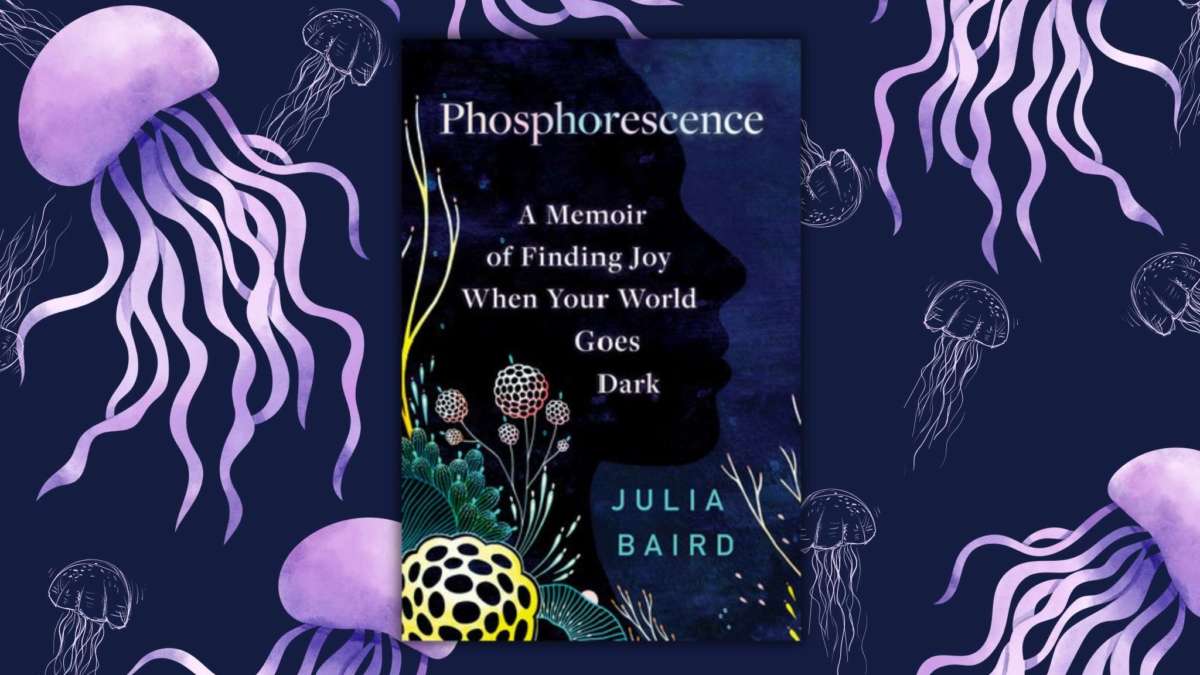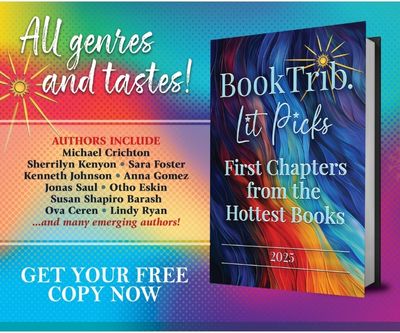Phosphorescence
In Phosphorescence: A Memoir of Finding Joy When Your World Goes Dark (Random House), Australian journalist and biographer Julia Baird explores the experiences that give life meaning and joy — the things that make life glow. The book is a thought-provoking mix of journalism and memoir as Baird blends essays about the natural world and the things that inspire “awe, wonder and silence” with her own personal encounters with both nature and hardship.
The title came from Baird’s experience of swimming at night in a bioluminescent sea. “These living lights became a symbol of joy and abandon for me,” she writes. The book examines a variety of experiences that provide a feeling of transcendence. A long-running battle with a rare abdominal cancer prompted her search for these “phosphorescent” experiences as both a means of healing and a means of understanding what it is to be human.
In the first section, Baird discusses some of the effects that nature has on humans when we take the time to truly experience it. Baird belongs to an ocean-swimming group that meets in Sydney Harbor every morning after sunrise, and it’s clear that this is not the same type of swim as the magical nighttime sessions of her youth. This is often a tough and challenging experience: the group has been stung by swarms of jellyfish, buffeted by swells and waves so strong that “newcomers often need to be rescued,” but still, encounters with cuttlefish, dolphins, eagle rays and sea turtles inspire an exhilarating sense of awe.
Baird cites studies in medical journals that back up her anecdotal experience of swimming as a healing activity. Researchers are seriously exploring ocean swimming as a treatment for depression and anxiety, and Baird finds the sense of community invaluable as well. In our age of digital and virtual connection, she writes, “it’s wonderful to sit among such a varied group of people — with many of whom you really share only one thing — and talk rubbish and riptides.”
Baird theorizes that the disconnect from nature that so many people experience in our work-driven and increasingly urban lives is at least part of the reason for rising levels of depression among other mental illnesses. If that is true, then increasing time outdoors could be part of the cure. Baird discusses numerous studies that indicate activities like forest bathing, a Japanese trend quickly gaining global attention, or walking in nature can improve PTSD, dementia, depression, high blood pressure and even increased immune-response cells.
The next sections of the book explore giving our lives meaning through our encounters with each other and with society as a whole. Baird reminisces about her unsuccessful battle in the nineties to allow women to be priests in the Anglican diocese of Sydney. After years of effort involving papers, petitions, synod meetings and speeches, the diocese’s position actually regressed. While other Anglican churches were allowing ordination, the Sydney diocese began to ban women from the pulpit in any capacity. But instead of seeing this experience as a failure, Baird muses on the value of all types of activism that eventually bring about change.
She concludes that telling our stories, both of triumph and failure, is important. Hearing the voices of everyone, not just those in power, is important. “Weight is cumulative,” Baird says, meaning that while not everyone will live to see their efforts come to fruition, those efforts still become an important link in the chain of events that bring about change and justice. The message here is to tell your story, stand up for what is right and feel good about it, even if the effects are not immediately visible.
Baird also covers the value of forming and keeping strong friendships. These are the relationships that sustain us through tough times and bring us joy at all times. Schadenfreude, or joy in the misfortunes of others, gets a lot of air time, according to Baird. Far less known is the more positive freudenfreude, or joy in the accomplishments of others. Rejoicing in your friends’ good fortune can be one of life’s great phosphorescent experiences, Baird says.
Nature, involvement in a cause, enduring friendships: these are the things that give one’s life joy and meaning. The message of Phosphorescence is to really look — “Regarde” as Baird puts it — to find and include those things that will make your life glow.




